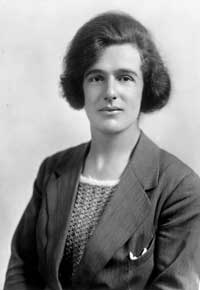Jessie Stephen 1893-1979
 Lived in Edinburgh then Glasgow. She hoped to become a teacher but her parents could not afford it so she went into domestic service.
Lived in Edinburgh then Glasgow. She hoped to become a teacher but her parents could not afford it so she went into domestic service.
At age 12 she was selling ‘Labour Women’ outside St Andrew’s Hall in Glasgow. She became vice-chair of her local ILP (Independant Labour party) Branch in Mayhill at 16 – the youngest you were allowed to be a full member.
She joined the WSPU, attending branch meetings and demonstrations and participating in acid attacks on post boxes – unsuspected in her servant’s clothes.
As part of a delegation of 12 women from Glasgow WSPU, she lobbied the House of Commons and was received by Prime Minister Lloyd George. She saw gaining the vote as only a means to an end and was an active campaigner for Women’s rights all her life – through labour party, co-op movement and trade unions.
Jessie organised her fellow domestic workers into the Scottish Domestic Workers Federation which was then integrated into the Domestic Workers Union of Great Britain (DWU). Because of these activities employment dried up and she moved to London.
Returned to Glasgow in WW1 but Sylvia Pankhurst recruited her to work for WSF (Worker's Suffrage Federation) in England. She stayed until 1917 then became organiser of the Bermondsey ILP and was elected to the Borough Council in 1922.
Later she became a journalist with a regular women’s column for the Glasgow Herald. She lectured in the USA and Canada in the 1920s, was active in the Worker’s birth control movement, ran her own secretarial agency and joined National Union of Clerks in 1938. She became councillor in Bristol in 1952 and the first woman president of Bristol Trades Council.
She was awarded the TUC gold badge in 1955 and the MBE in 1977 for her work in the TU movement.
Photo souce Wikipedia
